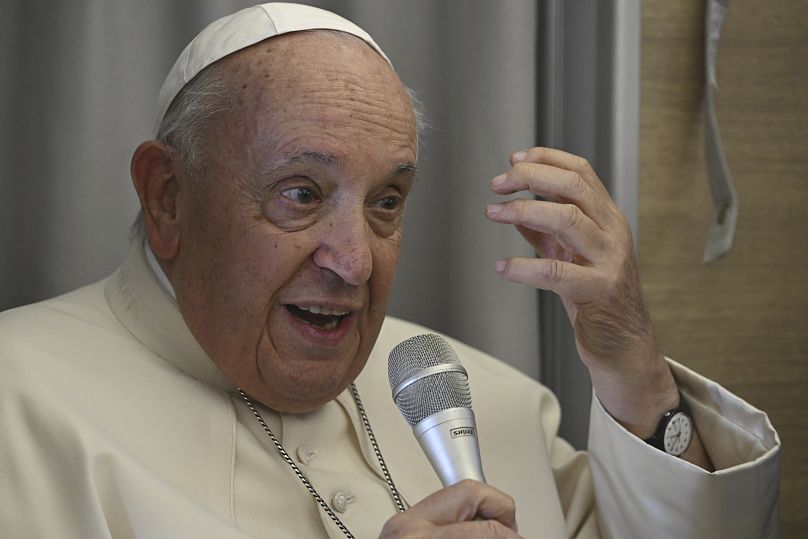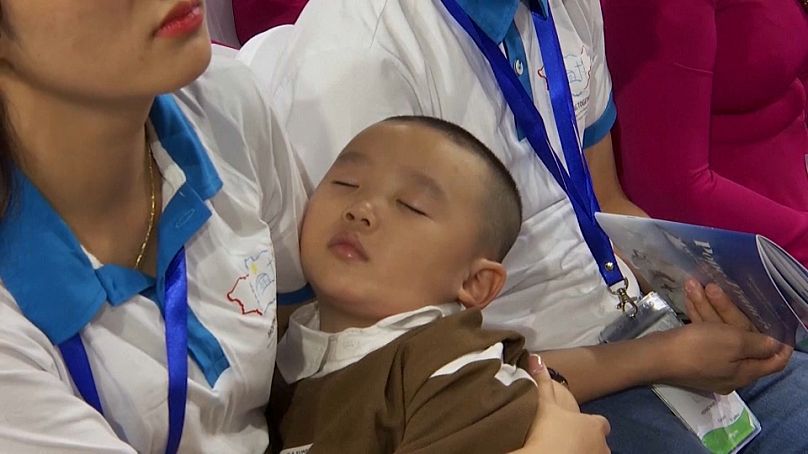The Pope's visit to Mongolia sent clear signs of friendship toward China and its President Xi Jinping, but Beijing's response hasn't been encouraging.
While Pope Francis was praising the merits and history of the Mongolian people during his historic trip to Ulan Bator in recent days, across the border the book 'General History of the Mongols' was being removed from archives and bookshops in China and even branded as an example of 'historical nihilism.'
 ADVERTISEMENT
ADVERTISEMENT
 ADVERTISEMENT
ADVERTISEMENT
Beijing also forbade groups of Chinese Catholics to travel to Mongolia to greet the Pope at close quarters. Nevertheless, a few Chinese fans of Francis, probably briefly stationed in Mongolia, showed their affection for the Pontiff by bringing a large flag of Communist China to one of the rallies.
Secret agreements
So how has the Catholic Church multiplied the number of faithfuls in China?
Some Vatican experts believe a secret agreement was made with the Chinese Communist Party (CCP), that helped contain - under strict state control - the possible growth of the Catholic Church in mainland China. There are currently only a few million Catholics in the entire country.
This was confirmed to Euronews by British Vaticanist Christopher Lamb, though, like his colleagues, he ignores the details of the treaty between China and the Vatican whose impenetrable guardian is Vatican Secretary of State Pietro Parolin.
Some suggest the agreement is at a standstill and that the Catholic Church is doing well in Hong Kong and Taiwan but remains essentially marginalised in Greater China.
The nullification of Mongolian history
According to AsiaNews, the nullification of the history of the Mongols on Chinese soil was spread by the Hong Kong pro-Beijing daily Sing Tao, which cited a directive issued on the 25th of August by the Inner Mongolia branch of the Association for the Distribution of Books and Periodicals, a Chinese government agency.
Even more shocking is the fact that the volume in question - the work of scholars from the Mongolian Studies Department of the Inner Mongolian Institute of Education - already framed Mongolian culture from a Chinese nationalist perspective.
Complicated Asian chessboard
The entire chessboard of the Far East with its boundless moors and seemingly remote population is of paramount importance today.
As international tensions multiply against the backdrop of the war in Ukraine, and major players such as China, Russia, and the United States manoeuvre in the depths of all kinds of bureaucracy, religion too is in danger of ending up in the meat grinder of global tensions.
In this regard, Lamb explained to Euronews that while former US president Donald Trump's administration looked with suspicion at the Vatican's foreign policy and even its treaty with Beijing, the current president Joe Biden seems more interested in the role Catholics could play in China, despite the difficult situation.
Despite Pope Francis' message of great openness and friendship with the Chinese people at the end of Mass in Ulan Bator on Sunday - including his exhortation to all Catholics to be good Christians and good citizens - there was no coverage of the speech by Chinese media.












